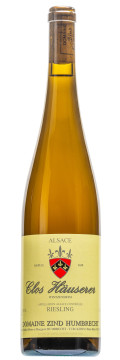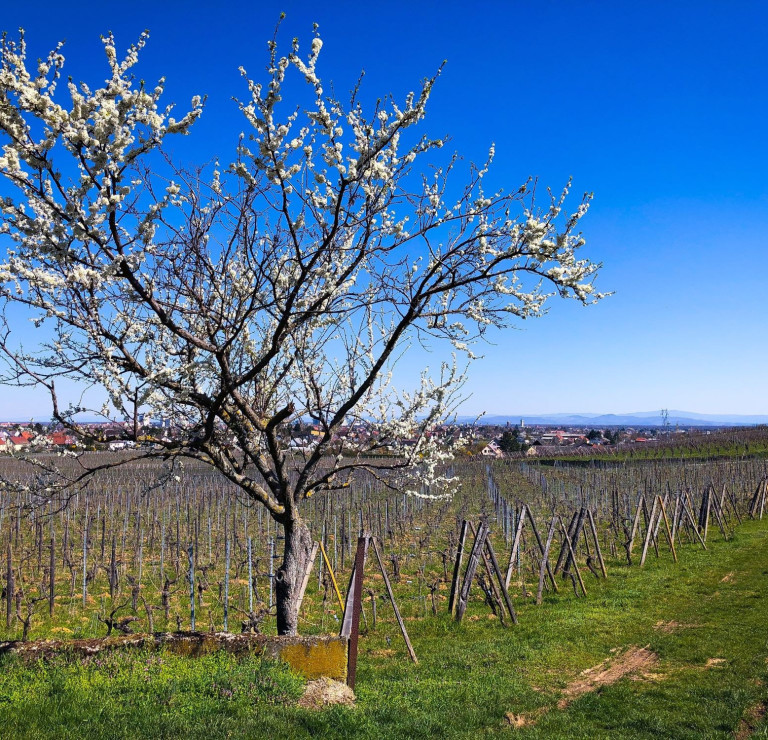
Technical presentation
| Bottling : | January 2024 |
|---|---|
| Acquired alcohol : | 13.4° |
| Residual sugar : | 1.1 g/l |
| Total acidity : | 4.3 g/l H2SO4 (6.6 g/l Acide Tartrique) |
| pH : | 3.15 |
| Yield : | 53 hl/ha |
| Optimum tasting : | 2025-2042+ |
| Average age of vines : | Vineyard planted in 1973 |
| Terroir : | Clos Hauserer |
| Sweetness index : | 1 |
| Available for sale : | Yes |
| Soil : | Calcareous Marl from the Oligocene period, East facing, Gentle slope |
Description of the wine Riesling Clos Häuserer 2022
The Clos Häuserer is a small monopole vineyard located just below the Grand Cru Hengst in the village of Wintzenheim. Its 1.2 ha were planted 100% in Riesling by my father Léonard humbrecht in 1973. It lies on a calcareous mother rock from the Oligocen period. The soil is made of the erosion of the older limestones (oolithic) that were on top of the Vosges mountains during the second era. These limestone pebbles were then cemented in an iron rich sandstone that also contains some quantities of marl. We call them conglomerate limestones or coastal limestones (it is the see that eroded these rocks). These soils are very interesting because they have a good proportion of rock elements (calcareous pebbles, sandstones…) and contain finer elements like marl that make the very drought resistant. They also have a rich mineral composition. Being on the bottom of the hill, the Clos Häuserer enjoys a particularly rich topsoil with a slightly higher marl proportion. This can be seen on the wines as the clay element also brings a certain roundness and pleasure element to a wine that can be quite big in its first years.

Tasting notes
01/2024: Light gold yellow colour. The nose shows a precise mineral profile, almost smoky. This little reductive character will disappear quickly with time (or decanting the wine) which suits the profile of this vineyard. The palate is ample, suave and shows a harmonious balance. The old vines bring density and length leaving the taster with a great sense of serenity when drinking this wine. The finish is dry and salivating. This wine can be enjoyed today or forgotten in a good cellar (or both!).

The Clos Häuserer of Wintzenheim
This soil rich in clay and chalk gives an important structure to the Riesling grown in the Clos Haüserer. Although this vineyard benefits from a warm and precocious climate, ripeness is achieved much later than the surrounding terroirs.